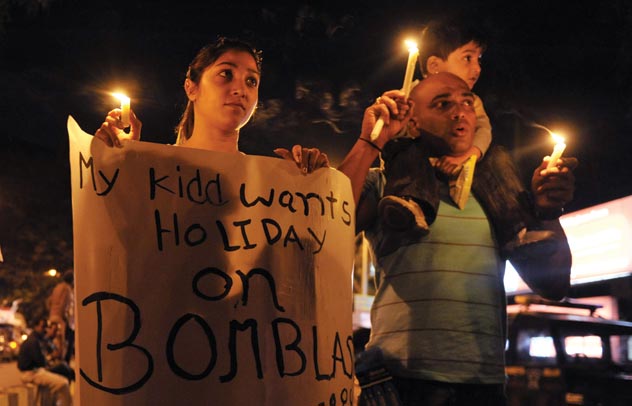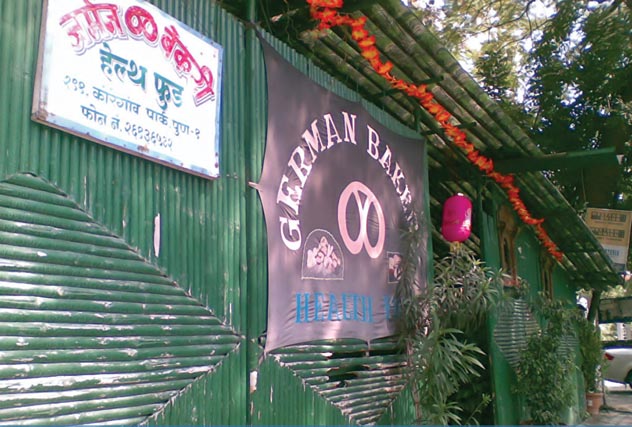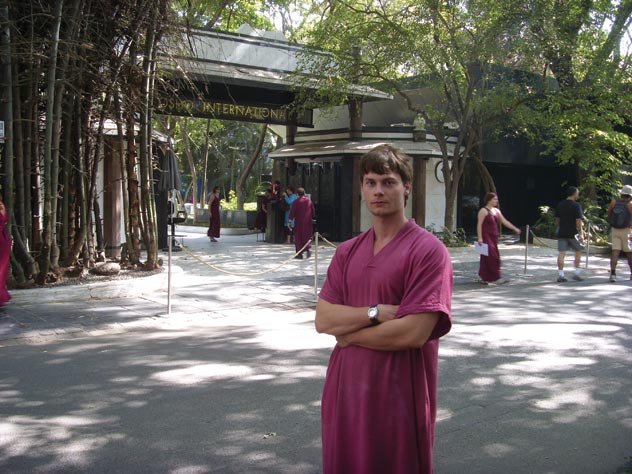|
|
|
ADVERTISEMENTS
|
|
PREMIUM
- HAPPY HOLIDAYS!
- Siliconeer Mobile App - Download Now
- Siliconeer - Multimedia Magazine - email-Subscription
- Avex Funding: Home Loans
- Comcast Xfinity Triple Play Voice - Internet - TV
- AKSHAY PATRA - Bay Area Event - Sat. Dec 6
- Calcoast Mortgage - Home Loans
- New Homes in Silicon Valley: City Ventures - Loden Place - Morgan Hill
- Bombay to Goa Restaurant, Sunnyvale
- Buying, Sellling Real Estate in Fremont, SF Bay Area, CA - Happy Living 4U - Realtor Ashok K. Gupta & Vijay Shah
- Sunnyvale Hindu Temple: December Events
- ARYA Global Cuisine, Cupertino - New Year's Eve Party - Belly Dancing and more
- Bhindi Jewellers - ROLEX
- Dadi Pariwar USA Foundation - Chappan Bhog - Sunnyvale Temple - Nov 16, 2014 - 1 PM
- India Chaat Cuisine, Sunnyvale
- Matrix Insurance Agency: Obamacare - New Healthcare Insurance Policies, Visitors Insurance and more
- New India Bazar: Groceries: Special Sale
- The Chugh Firm - Attorneys and CPAs
- California Temple Schedules
- Christ Church of India - Mela - Bharath to the Bay
- Taste of India - Fremont
- MILAN Indian Cuisine & Milan Sweet Center, Milpitas
- Shiva's Restaurant, Mountain View
- Indian Holiday Options: Vacation in India
- Sakoon Restaurant, Mountain View
- Bombay Garden Restaurants, SF Bay Area
- Law Offices of Mahesh Bajoria - Labor Law
- Sri Venkatesh Bhavan - Pleasanton - South Indian Food
- Alam Accountancy Corporation - Business & Tax Services
- Chaat Paradise, Mountain View & Fremont
- Chaat House, Fremont & Sunnyvale
- Balaji Temple - December Events
- God's Love
- Kids Castle, Newark Fremont: NEW COUPONS
- Pani Puri Company, Santa Clara
- Pandit Parashar (Astrologer)
- Acharya Krishna Kumar Pandey
- Astrologer Mahendra Swamy
- Raj Palace, San Jose: Six Dollars - 10 Samosas
CLASSIFIEDS
MULTIMEDIA VIDEO
|
|
|
|
|
SUBCONTINENT:
Picking the Pieces: After the Pune Attacks
The recent terror strike in brought a rude reminder of the role and nexus of indigenous terror groups and sleeper cells in orchestrating militant strikes in India, writes Siddharth Srivastava.

(Above): Pune residents hold a candlelit vigil in their city Feb. 14 in protest against the previous day’s terror attack on the landmark eatery German Bakery. A bomb ripped through a restaurant popular with students and tourists in central Pune, killing 15 people. (Getty Images)
The terror strike at western city Pune that killed 11, including two foreigners and injured 60 people has once again brought to focus the role and nexus of indigenous terror groups and sleeper cells in orchestrating militant strikes in India.
Although New Delhi has been speaking about the elaborate plans that went into implementing the attack, it is apparent that “soft targets” can almost be picked at will in India, as has happened following India’s offer to renew the peace process with Pakistan recently.
U.S. President Barack Obama called up Indian Prime Minister Manmohan Singh to condemn the Pune blast and express solidarity in the fight against terrorism, an official statement said. Obama also backed the upcoming Indo-Pak talks.
Commenting on the Pune blast, federal Home Minister P. Chidambaram told reporters, “I am not ruling out anything and not ruling in anything. It was an insidious attack, planting a bomb at a soft target establishment.”
“Most pointers to the blast suggest that it is the handiwork of terror elements from outside the city. The incident appears thoroughly well-planned and executed.”
Official sources say that the role of an envelope domestic terror group such as the Indian Mujahideen is being overstated as over time numerous “sleeper cells” involving few people, sometimes even single individuals (such as arrested Pakistani-American national David Headley) have been formed and cultivated.
As with the al-Qaeda, IM is an abstract rubric for multiple terrorist cells plotting attacks without knowing about each other’s existence and can involve tapping into sympathizers of banned groups such as the Student’s Islamic Movement of India known for their radical or extremist stands.
An attack such as at Mumbai in November 2008 requires elaborate planning and training of jehadi commandoes, while a strike such as Pune using improvised explosive devices has happened using local elements, who could be Hindu or Muslim.

(Above): Pune’s German Bakery in happier times. Located in the city’s posh Koregaon Park neighborhood, the place was a favorite hangout for foreigners and the hip local crowd until a terrorist bomb blast in February shocked the city.
The changing and dynamic nature of the IM and associate cells is reflected in the statement of home secretary G.K. Pillai who said following the Pune attack: “We do not know whether the old modules still exist or whether some new modules have come up. But we have alerted the states wherever they had existed earlier and keep a check on their activities.”
At the same time officials say that the count of local Indians involved in terrorist crimes does not exceed 100-150 and is no reflection of the thinking or inclination of the rest of the 140 million Muslims in the country
The handlers, meanwhile, could be much bigger forces embedded within the Pakistani Army, ISI or based out of the Middle East, Saudi Arabia, Bangladesh or Nepal.
There could also be a few key persons based out of India, an aspect admitted by Chidambaram, recently and in the wake of the November 2008 Mumbai blast investigations.
Investigating agencies are particularly pursuing what has been dubbed as the “Karachi project,” involving the Pakistan based Lashkar-e-Taiba-IM groups working with American jihadi Headley, who has confessed to the FBI of having conducted several reconnaissance trips to potential hit areas in Pune and other cities.
There is evidence of big monetary compensations involved rather than fighting for a cause, whether Kashmir or injustice to Muslims or imperialist America, that requires a separate strategy of building indoctrinated jehadi cadres involved in the numerous suicide attacks in the region, the officials say.
The Pune attacks bear resemblance to several attacks carried out in India over the last five years spanning cities across the country — Mumbai, Delhi, Hyderabad, Varanasi, Ahmedabad, Surat, Jaipur, Guwahati, among others.
The IEDs, usually remote controlled, are locally assembled or smuggled RDX is used, causing maximum human casualty in a small area, usually a crowded place such as a restaurant, movie hall, market, passenger train or place of worship.
The police have procured CCTV footage of the Pune blast and are studying the evidence that points at least two terrorists involved in the act.
New Delhi has rubbished claims by two obscure groups — Lashkar-e-Taiba al Alami (International) and IM-Kashmir, claiming responsibility for the Pune blast as having “no value” and intended to “confuse ongoing investigations.”
Indeed, much has been said about the absence of any militant attack in India following the brazen Mumbai strikes, until Pune happened.

(Above): The Osho Ashram in Pune is not far from the German Bakery which was hit by a terrorist blast. Analysts say the ashram and a nearby Jewish Chabad Center could have spurred on extremists to select the cosmopolitan city of Pune for a terrorist attack.
However, officials closely involved in internal security operations in India say that the 15-month “lull” was because terror cells “chose” not to attack rather than due to any major security overhaul or systemic change that cannot happen in such a short time for a vast country such as India.
This is also reflected in the repeated Maoist attacks in West Bengal and Bihar over the last week and otherwise spanning over states of Jharkhand, Madhya Pradesh, Chhatisgarh, Orissa and Andhra Pradesh.
“Terror strategies keep on changing,” said an official. “Earlier the focus of militant groups such as LeT and their backers in Pakistan was to orchestrate a low intensity proxy war against India, implemented most violently in Kashmir. Now the aim is to create a global impact as the message is sought to be conveyed to America, which is seen as the enemy number one.”
Given such an approach, sources say, there was no rationale for the Pune attacks as the effects of the brazen Mumbai attacks, in which many foreigners died, still continue to reverberate across the globe.
“The focus of the Islamists right now is in Afghanistan and Pakistan. India has come into the spotlight of the militants again only because of the recent happenings related to renewing Indo-Pak talks and efforts by New Delhi to have more say in Kabul,” said a security source.
In this context, the sources say that message from the Pune blast is clearly to America that has been pushing for the peace talks in order that Pakistani troops from the eastern borders (with India) can be deployed for operations against the Al-Qaeda in the northwest provinces.
This could also pave the way for a gradual reduction of American military presence in the violent Pakistan-Afghanistan vortex, involving the Taliban and the al-Qaeda.
By picking on the German Bakery in Pune, located in a posh area and frequented by foreigners and the elite middle class that also harbors the Indian media, twin messages have been delivered to America as well as the Indian power stake holders: The bakery is situated close to the Osho ashram and diagonally across from the Jewish Chabad House.
The big worrying factor is that the Pune strikes could be carried out almost at will and within a few days of the Indo-Pak talks being announced, say the officials.
New Delhi’s official statement following the Pune attack also reflects the thinking. The top level Cabinet Committee on Security stated: “The government believes the blast was timed to derail the resumption of dialogue between India and Pakistan. The initiative to pass on to terror groups should not be allowed.”
Although New Delhi has been highlighting the role of “non-state” factors in terrorism, it is clearly on the back foot.
This week, Foreign Minister S.M. Krishna said that the focus of the Indo-Pak foreign secretary talks slated for Feb. 25 is “terror.” “The composite dialogues (which means discussing Kashmir among other issues) are suspended. The brief for our secretary is that terror is the center and focus point of talks.”
|
 Siddharth Srivastava is India correspondent for Siliconeer. He lives in New Delhi. Siddharth Srivastava is India correspondent for Siliconeer. He lives in New Delhi.
|
|
|
|
|
|